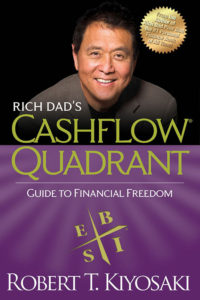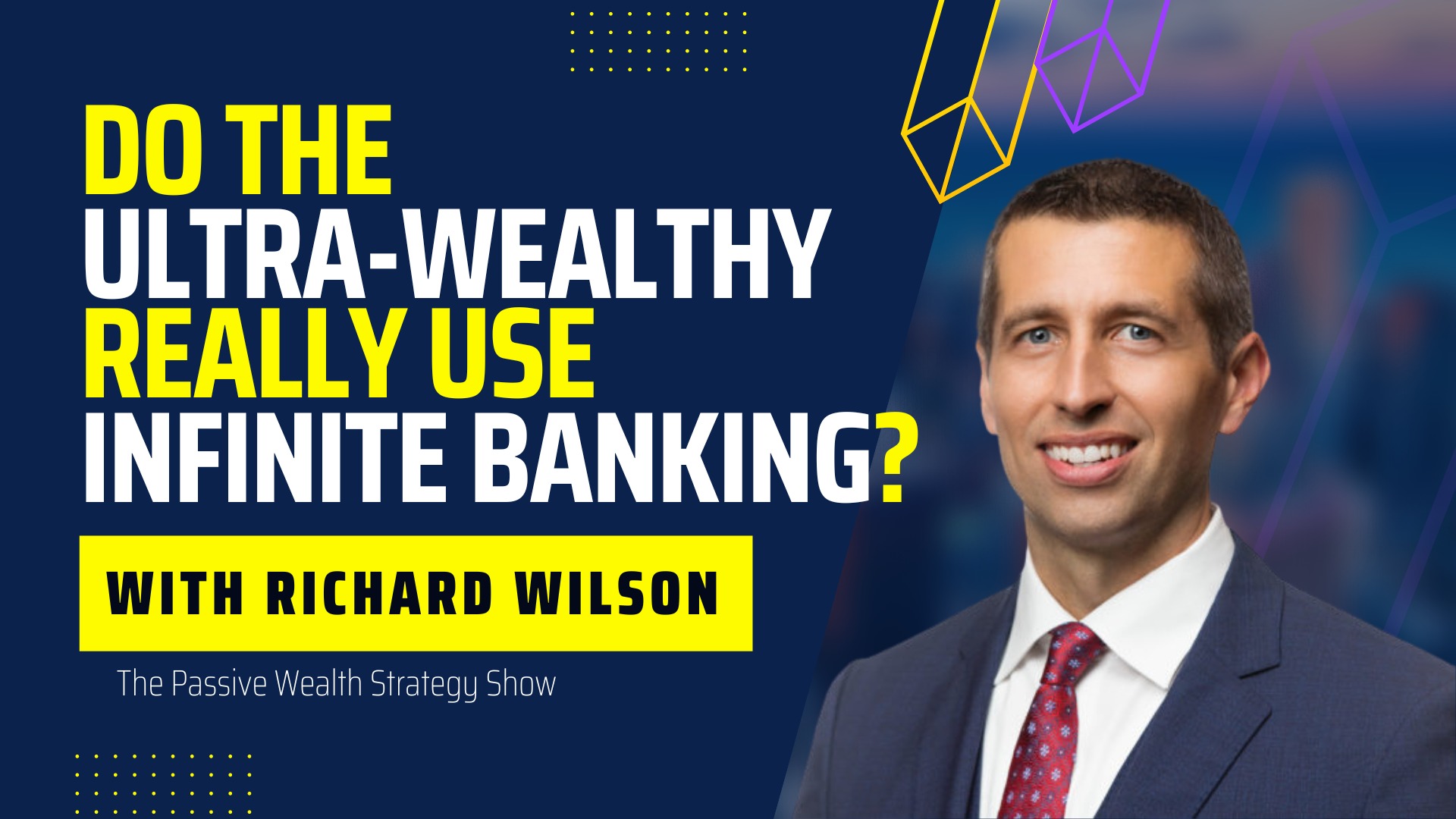Reading a book on a plane and deciding to change your life’s path when you get off the plane happens once in a blue moon to curious individuals. Surgeon-turned-serial entrepreneur, asset manager, and podcaster Dr. Buck Joffrey shares how Robert Kiyosaki’s book, Cashflow Quadrant, changed his life. Since then, Dr. Joffrey has amassed a substantial portfolio of investments in real estate, energy, internet and health sectors, and has been influencing high-paid professionals like him to have other sources of income while mitigating taxes at the same time. In this telling conversation, he talks a little bit about his path to entrepreneurship. Tune in to learn Dr. Joffrey’s real estate wealth formula to reduce your tax bill and keep some of the money that you’ve earned.
—
The Real Estate Wealth Formula For Reducing Tax Bill with Dr. Buck Joffrey
Our guest is Buck Joffrey. Buck is a surgeon turned serial entrepreneur, an asset manager and a podcaster. Dr. Joffrey finished his surgical training back in 2008. Since then, he has started multiple seven and eight-figure businesses and has amassed a substantial portfolio of investments in real estate, energy, internet and health sectors. Dr. Joffrey is also a financial educator. He is the host of the Wealth Formula Podcast, one that I enjoy listening to, and an international number one bestselling author of 7 Secrets of Eternal Wealth. His mission is to provide financial education for high paid professionals. I know we have many of those reading this blog. I’m excited to have him on the show. Buck, thank you for joining our team.
Thanks for having me.
Imagine you get out of your surgical training, getting it out into the wide world. You’ve got your education done. If you’re anything like most of the doctors that I know, you have a giant pile of debt but a substantial income. What was your shift getting out into the world and how did you cope with that? Tell us a little bit about your path getting into entrepreneurship.
I was an academic guy in residency and med school. I was writing papers and thought I would end up a chairman somewhere. Toward the end of my training, I was getting burnt out on hierarchy, academia and all that. I was ready for some change. My training ended. It was 2008, 2009 or close around there. I got married the day after training and I went on my honeymoon. On the way home from Puerto Vallarta, I randomly picked up a book from Robert Kiyosaki called the CASHFLOW Quadrant. I read it on the way home. I’d never thought about money. I never contemplated at all. I knew it was going to be making some as a doctor, but I’d never thought about thinking of myself as the money guy and an entrepreneur.
I never even thought about what an entrepreneur was. I came off the plane. I was completely transformed. It sounds ridiculous, but it’s true. I’ve told Robert Kiyosaki the exact same thing on my show. It’s a bolt of lightning. I was off to the races. I started a practice, but effectively right away thinking, “I want to start a business and practice.” I never put my name on the door. I started to try to create a brand. I was doing heavy marketing for a cosmetic surgery practice of mine. I was initially the owner-operator doing TV, radio, internet. I wasn’t making much money, but I was spending a lot of money and that became very successful. Ultimately, I ended up phasing myself out of that business. I did it a couple more times and a couple of other medical-related businesses. At this point, I’m making money. Part of the reason I didn’t start immediately going into real estate is I had no money to buy anything. I started looking at ways of turning that higher income as he called it into wealth. Robert Kiyosaki would say, “Having your money work for you.” That’s the rabbit hole I went down. I’m the living animated version of the CASHFLOW Quadrant.
Kiyosaki has an idea of a lot of us are carrying buckets, but what we need to be focused on is building pipelines for money to head to us. You’ve certainly done that over and over again. Now particularly as a financial educator that points toward high paid professionals and educates them. What have you seen as some of the biggest mistakes that high-paid professionals make in terms of wealth generation and then opportunities for them to avoid those mistakes and do even better?
The problem with high-paid professionals that I encountered. A lot of people in the health field is certainly not all my listeners, but I have lots of doctors and dentists. I have a lot of engineers and all that too. They are good students. They were people who were good at taking what was presented to them and basically turning around and being able to master that information. The problem is that when you finished school, you don’t have a curriculum anymore. No one is telling you what to do so you can’t ace the test. There’s no test to take anymore. It’s all self-driven. What happens in that situation is people who are A students tend to become very firmly attached to conventional wisdom because they have nothing else to reach for in terms of a playbook.
Conventional wisdom in finance is stocks, bonds, mutual funds and finding a good wealth advisor, etc. The problem with that is conventional wisdom in this situation is influenced by special interests, namely the banks. The system is such that a lot of highly educated individuals come out of school thinking that there is a “conservative way” of doing things, the right way of doing things. That one way is the conventional route of the financial planner, stocks, bonds and mutual funds portfolio, your 401(k) and all that stuff. I’m not saying that is a wrong way, but I am saying is it’s not the only way. It’s certainly not the right way of investing.

That’s breaking away from that orthodoxy. That is difficult for people. It’s almost like having a religion and trying to switch your religion or something like that. It’s the biggest challenge for people to admit that there might be other ways of thinking. I have people who are investors in my investor club that say it all the time. They say, “I don’t know why I’m even making money.” It makes sense. For some reason, some part of me is always telling me I’m doing something wrong. Does that sound like guilt? It’s guilt. The orthodoxy is the problem, conventional wisdom in financial. The financial sense is the problem.
There certainly are a lot of special interests out there. What do you define in terms of numbers as a high paid professional? I feel it’s important to put a number on those.
My show focuses on accredited investors. I’m sure you’ve probably defined it, but it’s $200,000 per year or $300,000 per year if you were filing jointly or $1 million net worth outside of your personal residence. The reason for that is because that’s a definition that describes a person who is able to invest in various types of offerings. My whole career as an investor has been investing in those offerings. As much as I would like to be a resource for people who aren’t making much money, I’m probably not your best resource there because it’s not my world. I don’t pretend it is. If you can put $25,000 or $50,000 into an investment and you meet these criteria, that’s who I’m talking about. That’s probably how I would define it as an accredited investor.
More and more as time goes on, our lovely federal government likes to continue spending as much money as possible. They pass the savings on to us in terms of higher taxes, generally speaking. On a percentage basis, these high earners pay the most. That’s the way it is. Do you have any ways, recommendations or methods that these high-paid professionals can reduce some of that tax bill and keep some of the money that they’ve earned?
I wouldn’t call them recommendations or advice by any means. There are certainly ways that the IRS allows for deductions. I’m not a CPA, it’s something I’ve learned a lot about because it makes a difference. You can either try to keep making more and more money. You’re going to do that, but it’s easier to save the money and eliminate or at least mitigate your expenses. The biggest expense most people have is taxes. If you can reduce that, it’s like a business. You have a top line. You have expenses. Whatever is left is what you keep. It’s profit. Your profit is what you personally make in your life is after taxes. If you can eliminate or mitigate taxes, you don’t need to make as much.
There are lots of ways. We talk about these types of things on my show, Wealth Formula Podcast. To name a few, various types of oil and gas investments. I’m not a huge fan of them, but that is a way of doing it. There are some serious tax benefits there. There are opportunities to buy equipment for business owners, etc., utilize some of the bonus depreciation and Section 179. There are even things like essentially buying deductions. There are things called conservation easements. They have to be done appropriately. They have to be done correctly. You have to dot I’s and cross T’s. You can significantly save a lot of money on taxes with that as well. In order to get to that point, you have to be willing to think outside of the conventional financial world.
In the conventional financial world, you’re not going to hear those answers, especially something along the lines of a conservation easement. I’m familiar with those from the side of the real estate investor who is essentially obtaining the conservation easement. How does that work from the side of the highly paid professional who may or may not be a real estate investor looking at trying to find ways to reduce their tax bill? How can they take advantage of that?
You can syndicate your conservation easement the same way that you can syndicate any real estate. In other words, effectively what we’re talking about here is a conservation easement is if you own a piece of land, you can declare it a conservation easement essentially giving up all rights of building on that land. If you do that, the IRS allows you to take a deduction not only for the cost and the basis of the property itself. In addition to that, a value that is appropriate for what could have been built there. In other words, say you had a piece of land and there was going to be a big project, it was going to be a hotel there. There’s going to be a resort there, but instead, you decided to give that property up. We’re not going to build it. We’re going to do this conservation easement instead. It means you don’t build it, but now you don’t write off the cost of the land. You write off the appraised costs of the structure you were going to build.

It may not be a dollar per dollar deduction. It may be for every dollar you invest or every dollar you had spent, you might get $4 or $5 of a deduction. As you can imagine, that can be pretty powerful. People might listen to that and say, “That’s crazy. That can’t possibly be legal.” The reality is the wealthiest families in the country using this. Let me point out that Ted Turner is known as a guy who owns a lot of lands. There’s a reason for that beyond the fact that he likes buffalo. Donald Trump owns an awful lot of land. He is known to be a huge user of conservation easements. Going back to your question of how do you use this if you’re a professional? You obviously have spoken on the topic of syndications. We do a lot of syndication in our group for multifamily real estate and that thing. There are also syndications for conservation easement purchases. Somebody might be literally selling the property to do that. In those situations, you can participate as a limited partner and effectively get the same benefits as if it was your own land. That’s what I’m talking about.
How would one go about finding those opportunities? Accredited investors have a lot more options in terms of finding private placements than sophisticated investors since accredited investors can invest in more types of SEC-exempt securities. What are some ways that we might find syndicated conservation easement opportunity?
I hate to say it, but the reality is it’s not hard to find when you Google conservation easement provider, you’re going to get a million of them. That’s the easy part. It’s like multifamily real estate. Here’s the thing is that when it comes to these types of things, the IRS hates them. It’s not illegal, but the IRS hates them. It means that if you are not doing this in a way with a group, with an operator who knows exactly what they’re doing and dots every I’s and crosses every T’s and goes through every point that has to be done, you could end up in some trouble. Answering your question about how do you find them, it’s actually not a whole lot different than asking the question, how I find someone who I want to invest with in multifamily or in storage?
For me, it’s all about network and who I know, who I like, who I trust and that’s how I discover these things. A lot of people think that you could go and look at a piece of paper, pro forma and that’s what it takes to be a good investor. That couldn’t be further from the truth. What I have found in my case is a passive active investor as a sponsor of syndications, etc., is that it has less to do with everything else, the numbers, etc., are meaningless until you know the people. I always tell my group, “I invest in people. I invest in operators. I don’t invest in deals.” The deals are secondary. If I can’t trust what’s on the paper, somebody is going to be able to execute on what they’re saying they’re going to execute on or somebody’s going to do something legally upfront. There’s no sense in going there anyway. The answer is the same way you would find any other investment.
The biggest challenge for people to admit is that there might be other ways of thinking. Click To TweetPersonally my own investing values, I fully agree with the team and the people come first. Properties I invested in passively are getting ready to be sold finally. We’re going to be in the black. For much of the life of the investment, it looked as though that might not happen. That was largely due to issues with the team related to property management. The properties themselves are not bad properties. I’m sure the people that buy them from us will do well and make money. For our experience, it looked iffy there for a while. It was entirely due to the reputability of the team and the composition of the team. I totally agree with that. The deal is subordinate to the quality, the experience, the reputation, all of that around the team. What is the best investment you’ve ever made?
The best investment isn’t necessarily the investment that I would keep going back to. I bought some buildings myself, not through syndication but some apartment buildings over the past few years. I got lucky in many respects because what happened is I was living in Chicago, I had some connections. People were handing me good deals because I could close on them quickly. They knew I had capital. I bought a handful of opportunities in the last few years that I ended up selling. Each one of them probably ended up with about annualized return of about 100%. To be quite frank, a lot of it was because I bought a slight discount because I was getting people out of loans, helping them out to move money quicker.
I made some minor improvements. The reality is I bought and I got lucky because some of these areas got hot. They gentrified in Chicago. I made a lot of money by holding on to them. I was cashflowing throughout the whole time. I ended up with 400% or 500% on each property. That was probably the best. I hesitate to talk about that a little bit because as an investor, as somebody who is thoughtful about investing, the idea of getting lucky is it might’ve been my best performance. I can’t say that it’s what I recommend for an investor to get lucky.
It depends on if you’re talking about businesses, any of my businesses, those types of returns on those. We’re talking well into the thousands of percents for the initial capital in those. If you’re talking about the types of investments that typically busy professionals are going to do. The group I work with primarily in our syndication group, the operators, their average return on investment to date is approximately 32% annualized on average. That’s hard to beat. This is a professional syndication group that I have been lucky enough to work with. That’s probably the best as a passive investor.

In terms of the worst investments, I’d say as an active one, it was the first apartment building I ever bought. I went on the numbers, cap rates and all that stuff that they teach you. I didn’t do enough homework on everything else that you have to do if you’re going to buy property, all the intangibles, not the numbers. I got burned. I lost money on that deal and sold it for a loss. I learned a lot. When I started investing as a passive guy, the first couple of times I invested, I didn’t necessarily know the people well. I have one investment, for example, still from a few years ago that this guy who’s on the circuit for being a syndicator, frankly, I’ve never seen a penny return.
It’s like a joke with my CPA. It’s the fund that has no returns. These things are experience-based. You get smarter as you do it. Like anything else, you’re going to make some mistakes. They say that you learn from your mistakes. That’s very true. What I found to be the case and what your audience can probably take note of is that you learn from mistakes, but they don’t have to be your mistakes. If you can get in with people who’ve been around the block a few times. We’ve gotten pretty good at stuff, that’s definitely another approach. For my group, obviously, I’m the guy that people are looking at to vet things and beat them up before they have to do the same.
I appreciate that you say essentially your best investment that you don’t take full credit for it in the sense that bull markets make geniuses out of everyone. The rising tide can help poor investing decisions look a lot better than they were. I’m certainly not implying that yours was poor in any way. I’m sure it was quite good. You would’ve done well even without the change in the market that you mentioned. From a psychology standpoint, in my opinion, it’s important that we don’t confuse our outside successes for some brilliance or infallibility on our own part especially when it comes to your investing. In a bear market, that’s one of the ways we can easily get burned. I certainly appreciate that. That leads a lot into my favorite question, what is the most important lesson you’ve learned in investing?
Beyond the fact that it’s more about who you know, like and trust in the team rather than the offering. Let me go to a specific because it’s important for the audience to understand who are starting to look at syndicated deals. There is an abundance of opportunity for people to participate in syndications. It’s important that people understand what happened last time in 2008 when people lost properties and what you can avoid. The real estate markets are frothy, etc. Everybody’s always predicting blood in the street. I personally don’t see that happening anytime soon.
The biggest expense most people have is taxes. Click To TweetOn the other hand, there are always cycles. We probably will have some cap rate compression, etc. In other words, asset prices are probably going to go down. One of the things to remember was in 2008 when people got in big trouble uniformly it was because they were overleveraged. What I mean by that, say for example an apartment syndicator was using 80% loan-to-value. That means there was 20% equity. There was a loan of 80%. There was a lot of situations where even if the property itself was cashflowing when the property values went down because the cap rates compressed, the loan itself was in violation of a loan covenant.
In other words, these loan documents come with laws. They say, for example, we’re giving you 80% of the loan. That means 20% of this needs to be equity. If you’re holding property and all of a sudden it goes down by 20%, 30% in value, you’re violating your covenant. For larger assets, we mostly deal with $20 million plus assets. This is nonrecourse, Fannie Mae, Freddie Mac debt. They do automatic appraisals every twelve to eighteen months. The moral of the story is one of the things that you can do to protect yourself is to make sure that you’re not over-leveraged or that the operator that you’re working with is not using too much leverage, especially as it pertains to any potential loan covenant.
Simplifying this I would say, moderate leverage and what else can you do to lower your leverage? Once you own a property, right now I wouldn’t buy anything that was not a value-add opportunity because value add increases net operating income. If you increase net operating income, the value of the property goes up. If you have a loan on it, you effectively deleverage. I don’t want to make this too convoluted. The moral of the story is if people don’t know what happened in 2008 with properties. They’re investing with people who may not have been in business in 2008 long enough to see all of the pitfalls, they need to make sure that these considerations are made.
When I say long-term, I’m talking about over the next few years. In my view, owning real estate because we’re going to be in an inflationary environment. There’s no question in my mind we’re going to be in an inflationary environment. I also think we’re going to be in a good economy in a few years too. It’s a good place to be owning real estate but not if you’re overleveraged because then you put yourself in the crosshairs of violating a loan covenant and losing your property. Hopefully, that was not too confusing, but it’s an important thing for investors to consider.

Sitting, absorbing and thinking about the implications of what you’re saying, to my mind, a property that is overleveraged say to put a number on it, three years from now, does not look like a property that is over-leveraged right now. I’m trying to think of ways we can look forward, generally speaking. Say three years from now, will this property that I’m considering investing in or eighteen months from now, put a date on it, this property I’m considering investing in will that be overleveraged? They’re not making loans on apartment buildings that are 100% loan-to-value or whatever crazy loans they were doing on single-families back in 2006, no doc and no stated income. You’re not doing that on apartments. What can we look out for? Is it that 80% loan-to-value? Maybe they’re looking at refinancing in a few years to pull some capital out and that might be untenable.
In my opinion, investing in anything that does not have a strong value add component is not a good idea. The reason I go back to that is there are two ways to decrease leverage. One is not to borrow as much. The other is to increase the value of the property. If you’re increasing the value of the property, you are effectively deleveraging. You’ve borrowed a certain amount from the bank. If the value of the property is going up because you’ve added value by driving up net operating income, you’ve deleveraged. I just bought these buildings and sat on them, painted the walls and whatever and make 100% annualized returns. Is it possible that you can do that? Anything is possible, but I doubt it. The markets are frothy. There has to be and will be some correction in part because rates are going up too. When interest rates are going up, cap rates have to go up. They have to. It’s math. The market is not going to allow cap rates to be so low if interest rates get high enough where they’re literally at the same level as the cap rates. You can have a 5% cap rate and take 5.1% interest rate.
The Fed is raising interest rates and we’ve seen some lag in the system. Cap rates haven’t started climbing back up quite at the same rate and the federal funds rate is climbing up. That gets pinned into the ten-year treasury and all that. It gets fairly complicated. On a first principles basis, there’s no way that interest rates can continue to climb, and cap rates don’t experience some serious upward pressure at least considering that lag in the system.
That’s the whole point behind interest rates going up. Mortgage rates, obviously you alluded to, they’re related to the ten-year treasury, which is a reflection of inflation. As you have inflation, rates go up and cap rates go up. The value of these properties has to come down a little bit in order to make that work.
Invest in people. Invest in operators. The deals are secondary. Click To TweetFor those of us that currently own property, we need to be wary and watch out. Certainly, I agree on the value investing or the value-add front that we need to be looking for those opportunities. If property values are coming down and we’re already an owner of the property in that market, I don’t want to be that guy whose property values are going down. I definitely want to look for those value-add opportunities. I agree there. Is there anything else that you want to add or any information you want to provide for our audience?
If anybody wants it and know more about what I’m talking about, we’ve got our Wealth Formula Podcast. We have our investor group in there too. Certainly, that’s a resource. We do focus on people who are accredited because the things that I talk about do tend to relate to that. The show itself is not an investing show. We don’t usually bring on people talking about investing in this, investing in that. The show is more broadly get economists, authors and things like that. It’s more education. That’s probably good for most people interested in learning about money.
I certainly enjoy listening to your show. Everyone should go check it out. Is that the best place for people to get in touch with you and learn more about you?
I think that’s probably the best place. It’s WealthFormula.com or the Wealth Formula Podcast.
Buck, thank you for joining us. Thanks for reading the blog. I’m happy to have you. I hope you got a lot out of this show. If you’re enjoying the show, please subscribe on iTunes or wherever you get your podcasts. If you know anyone that would benefit from this information, please feel free to share with them, point them in our direction. We’re happy to continue providing these interviews and these awesome guests that brings such a wealth of knowledge on investing and wealth generation, generally speaking, outside of the norm. Thank you for reading. We’ll catch you on the next one.
Important Links:
- Buck Joffrey
- Wealth Formula Podcast
- 7 Secrets of Eternal Wealth
- CASHFLOW Quadrant
- iTunes – Passive Wealth Strategies for Busy Professionals
- WealthFormula.com
- WealthFormulaBanking.com
- WealthFormulaRoadmap.com
About Buck Joffrey

Dr. Joffrey is also a financial educator. He is the host of the Wealth Formula Podcast and international #1 best selling author of 7 Secrets of Eternal Wealth. His mission is to provide financial education for high paid professionals.





